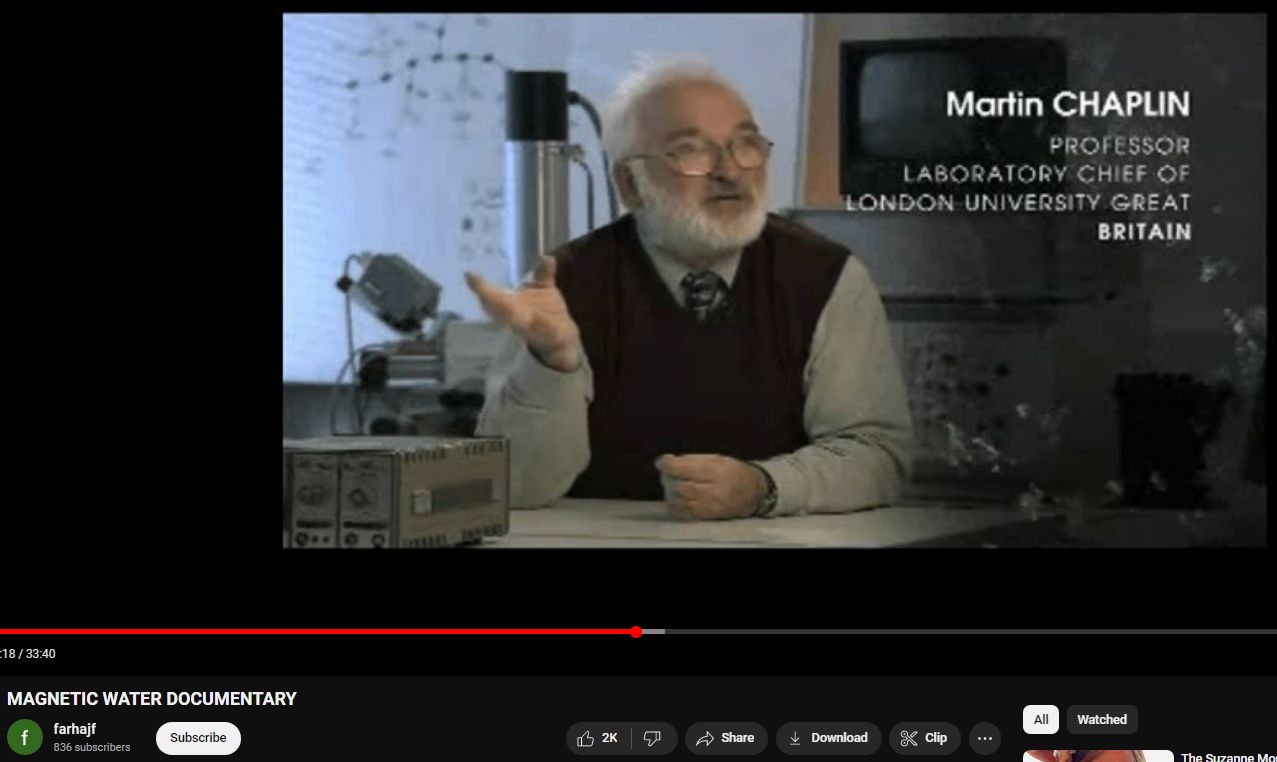Magnetic Water documentary
Dan Winter, a researcher known for his work in the fields of physics, consciousness, and sacred geometry, has explored various topics related to magnetism and its potential effects on water. While Winter’s ideas often diverge from mainstream scientific consensus, he has proposed several hypotheses about the relationship between magnetism and water.
One concept Winter has discussed is the idea that magnetic fields can structure and influence the properties of water. According to Winter, magnetic fields can induce changes in the molecular structure of water, leading to the formation of structured water clusters or “liquid crystals.” These structured water clusters are believed to have unique properties, including enhanced coherence, stability, and bioavailability.
Winter has also suggested that magnetic fields can influence the behavior of water molecules through principles such as resonance and entrainment. By exposing water to specific frequencies or patterns of magnetic fields, Winter theorizes that it may be possible to induce coherent oscillations or rhythms in the water molecules, potentially leading to beneficial effects such as improved hydration, cellular communication, and biological function.
Furthermore, Winter has explored the role of magnetic vortices and toroidal dynamics in shaping the flow and structure of water. He suggests that magnetic vortices, similar to those found in natural phenomena like whirlpools and tornadoes, can create coherent patterns of movement and organization in water, influencing its physical and energetic properties.

It’s important to note that while Winter’s ideas are intriguing, they remain speculative and controversial within the scientific community. The effects of magnetism on water are an active area of research, but much of the evidence supporting Winter’s hypotheses comes from anecdotal observations and theoretical speculation rather than rigorous scientific experimentation.
Overall, while Winter’s work has contributed to the exploration of unconventional ideas about the relationship between magnetism and water, more research is needed to fully understand the mechanisms underlying these phenomena and their potential implications for health, ecology, and technology.